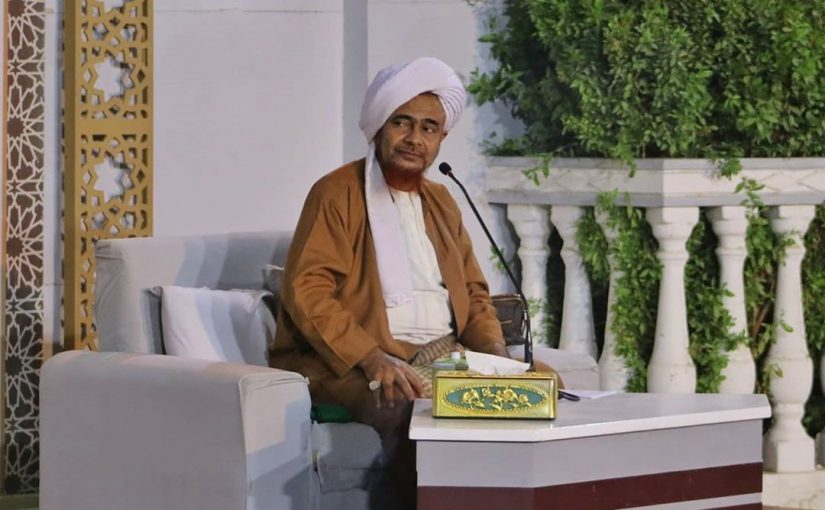A Summary of Lesson Three of Sayyidi Habib Umar bin Hafiz’s commentary on “Miftah al-Sarair” (“Key to the Inner Secrets”) by his ancestor, Shaykh Abu Bakr bin Salim. The book contains essential advice for every seeker.
Abandoning Love of the Dunya
Shaykh Abu Bakr bin Salim (may Allah have mercy upon him and benefit us by him) says:
“My brother, you must abandon the dunya inwardly and outwardly.”
To abandon the dunya outwardly is to avoid that which is dubious and disliked and to spend what wealth you have in the best way
To abandon it inwardly is for your heart not to incline towards it, love it or venerate it. You are not happy if you gain something worldly and you are not sad if you lose something worldly. Your heart should be focused upon Allah and that which draws you closer to Him and pleases Him.
It has been narrated that “Love of the dunya is the head of every bad deed.” All types of bad deeds are the result of the heart being attached to the dunya. The one who abandons it for Allah’s sake has cut off the head of wrongdoing and when you cut the head off something, it dies.
“Love of dunya and love of Allah cannot be united in a person’s heart just like fire and water cannot be united in one vessel.”
We must spend our lives nourishing our love for Allah until Allah and His Messenger ﷺ are more beloved to us than anything else. This is achieved by protecting our hearts from anything which contradicts that love. Firstly we reject disbelief and disobedience and then disliked and dubious things. Then we do not seek that which is in excess of our needs and we do not envy those who possess worldly things. If our hearts are free from these things then they are ready to receive the love of Allah.
When people complained about how expensive certain things were, the pious would say to them: “Make them cheap.”
“How?” they said.
“By not buying them.”
You find people complain about the cost of things but then buy more than they would normally buy and thus increase the price. If no one were to buy them, their price would go down.
Allah said to the dunya: “If someone serves Us, then serve him but if someone serves you, then use him.”
Shaykh Abu Bakr was in complete service of Allah, and as a result both the dunya and the akhirah served him.
Allah blessed him with such plentiful provision that every day he would bake up to a thousand loaves of bread to feed his guests and visitors. He had far more guests than any ruler in Hadramawt at the time. In spite of this, he instructed the women who were baking not to make the loaves too large since he was an ordinary man and not a king.
A poor dishevelled woman once came to the Shaykh’s house with a handful of grain. She wanted to give it to him in person but the Shaykh’s servant refused, telling her that the Shaykh was resting and he would not disturb him for the sake of this tiny amount of food. This upset the the woman but the Shaykh, however, appeared and welcomed her, graciously accepted her offering and gave her gifts in exchange. He said: “You have taken so many steps to come here for Allah’s sake and you have given us so many grains, all of which you will be rewarded for.” She left overjoyed.
He then chastised his servant, saying: “Had we not shown gratitude for small things, great things would not have been given to us. You looked at the amount of food and not at her intention and the effort she had made. Beware of hearting people’s feelings and belittling any blessing.”
This was the way of the Prophet ﷺ , who would venerate every blessing, however small it was. He once found a piece of food on the floor. He picked it up and said to Sayyidah Aishah: “Take care of these blessings for once they leave, seldom do they return.”
Shaykh Abu Bakr tells us that there are three types of seeker. Every person falls into one of these categories:
- The seeker of the dunya. He is never satisfied – even if he was given a valley of gold he would wish to have another valley. He has no portion in the next life.
- The seeker of the next life. He will be safe from the Fire
- The seeker of Allah. Such a person is very rare – even in the time of Shaykh Abu Bakr more than four hundred years ago!

